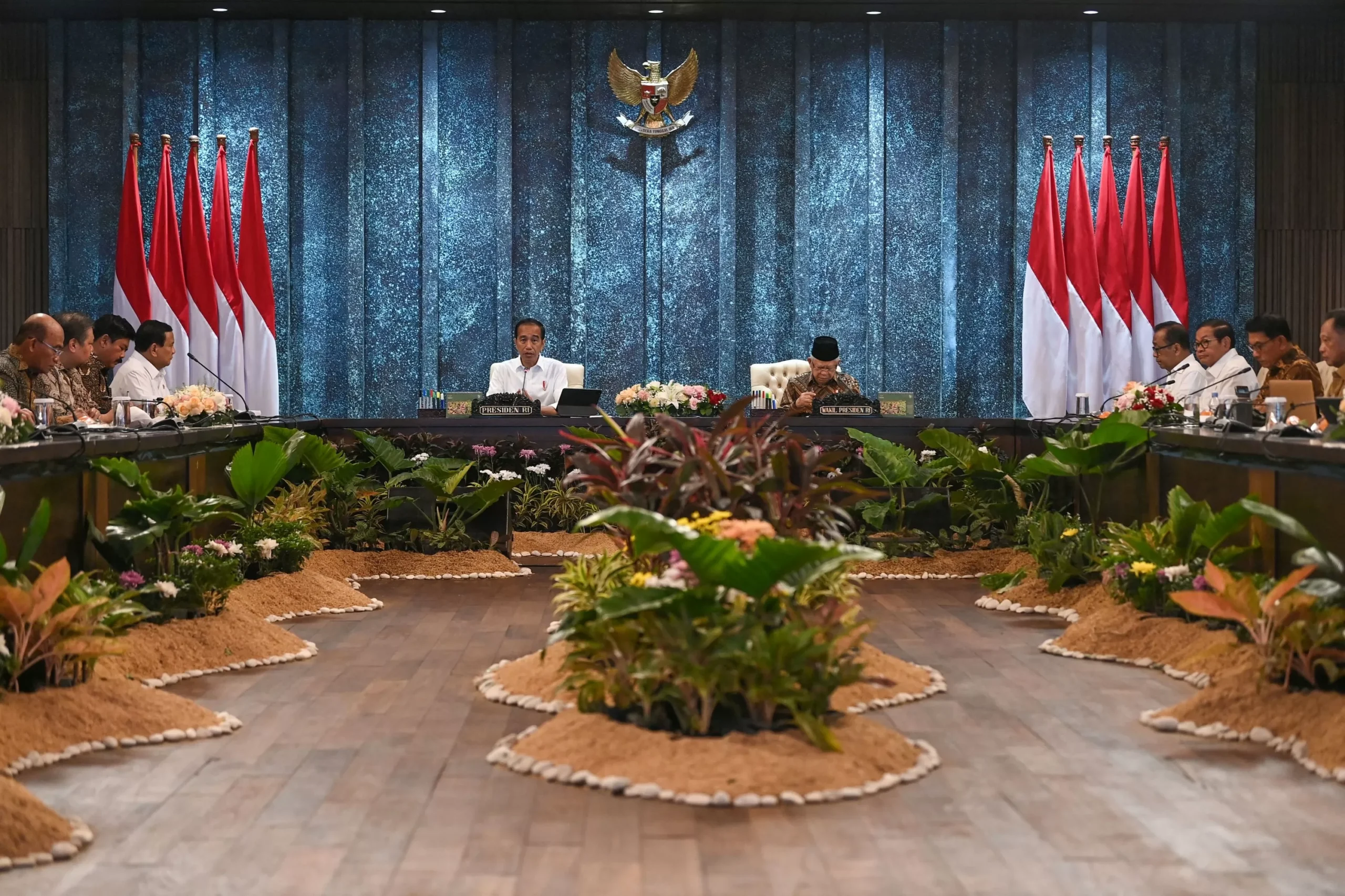Indonesian President Joko Widodo recently made a bold move by convening his first Cabinet meeting in the future capital of Nusantara. This decision has sparked both excitement and concern among the citizens of Indonesia, as the new capital is surrounded by miles of construction and growing concerns over its sustainability.
The idea of relocating the capital has been on the table for decades, with Jakarta facing numerous challenges such as overpopulation, traffic congestion, and environmental degradation. President Widodo’s vision of a new, modern, and sustainable capital has been met with enthusiasm from the people of Indonesia, who are eager to see their country progress and thrive.
The new capital, Nusantara, will be located in East Kalimantan, on the island of Borneo. This strategic location will not only help alleviate the burden on Jakarta but also promote development in other parts of the country. The President’s decision to hold the first Cabinet meeting in Nusantara sends a strong message that the government is committed to making this vision a reality.
As President Widodo addressed his Cabinet members, he emphasized the importance of sustainability in the development of the new capital. He stressed the need to balance economic growth with environmental protection, stating that the new capital must be a model for sustainable development in Indonesia.
The President’s words were met with applause from his Cabinet members, who are fully committed to making Nusantara a green and smart city. The new capital will be built with the latest technology and infrastructure, including renewable energy sources, efficient transportation systems, and green spaces. This will not only reduce the carbon footprint but also improve the quality of life for its residents.
One of the major concerns surrounding the new capital is the displacement of indigenous communities and the impact on the environment. President Widodo has assured that the government will work closely with the local communities and ensure their rights and interests are protected. He also emphasized the importance of preserving the rich biodiversity of Borneo, which is home to many endangered species.
The President’s commitment to sustainability is evident in the construction of the new capital. The government has set strict guidelines for developers to follow, including the use of eco-friendly materials and sustainable building practices. This will not only reduce the environmental impact but also create job opportunities for the local communities.
Moreover, the new capital will be a smart city, utilizing technology to improve the efficiency and quality of life for its residents. This includes the implementation of a digital government system, smart transportation, and advanced healthcare facilities. The government aims to make Nusantara a model for other cities in Indonesia to follow.
The relocation of the capital also presents an opportunity for the government to address the economic disparities between Java and other regions in Indonesia. The new capital will attract investments and promote economic growth in East Kalimantan and other parts of the country. This will create job opportunities and improve the standard of living for its residents.
President Widodo’s decision to hold the first Cabinet meeting in Nusantara has set the tone for the development of the new capital. It shows the government’s determination and commitment to making this vision a reality. The President has also called for the support and cooperation of all Indonesians in this monumental project, stating that it is a collective effort for the betterment of the country.
In conclusion, President Joko Widodo’s decision to convene his first Cabinet meeting in the future capital of Nusantara has sent a positive message to the people of Indonesia. The new capital will not only alleviate the burden on Jakarta but also promote sustainable development and economic growth in other parts of the country. With the government’s commitment and the support of its people, Nusantara is set to become a shining example of a modern, green, and smart city in the future.





![Complete BritRail Pass Guide [Types, How to Use It, Pros + Cons]](https://inside-news.uk/wp-content/uploads/2025/06/00221EB4-BCA2-4DBB-6CD4-83DBC37D71FA-120x86.webp)












![How to get from London to York [All options compared]](https://inside-news.uk/wp-content/uploads/2024/08/4B8F8A27-ADDB-AC92-8F19-74722FD9D3FF-120x86.webp)



